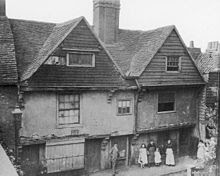A bit of writing by a 34 year old German priest and professor of theology set the world alight and was hugely influential in the creation of the Protestant Reformation. Performance writing on a world scale at a time when the middle east was in turmoil (The Ottomans were expanding empire) The Portuguese were visiting China and doing deals, England was suffering from the “sweating sickness” and the Fifth Council of the Lateran, an Ecumenical council of the Catholic Church, which had begun five years earlier, was coming to an end.
 |
| Albert of Mainz |
 |
| Luther |
 |
| Wittenberg |
 On 31 October 1517, Martin Luther wrote to Albert of Mainz, protesting against the sale of indulgences. He enclosed in his letter a copy of his "Disputation of Martin Luther on the Power and Efficacy of Indulgences," which came to be known as The Ninety-Five Theses. Hans Hillerbrand writes that Luther had then no intention of confronting the church, but saw his disputation as a scholarly objection to church practices, and the tone of the writing is accordingly "searching, rather than doctrinaire."Hillerbrand writes that there is nevertheless an undercurrent of challenge in several of the theses, particularly in Thesis 86, which asks: "Why does the pope, whose wealth today is greater than the wealth of the richest Crassus, build the basilica of Saint Peter with the money of poor believers rather than with his own money?"
On 31 October 1517, Martin Luther wrote to Albert of Mainz, protesting against the sale of indulgences. He enclosed in his letter a copy of his "Disputation of Martin Luther on the Power and Efficacy of Indulgences," which came to be known as The Ninety-Five Theses. Hans Hillerbrand writes that Luther had then no intention of confronting the church, but saw his disputation as a scholarly objection to church practices, and the tone of the writing is accordingly "searching, rather than doctrinaire."Hillerbrand writes that there is nevertheless an undercurrent of challenge in several of the theses, particularly in Thesis 86, which asks: "Why does the pope, whose wealth today is greater than the wealth of the richest Crassus, build the basilica of Saint Peter with the money of poor believers rather than with his own money?"Luther objected to a saying attributed to Johann Tetzel that "As soon as the coin in the coffer rings, the soul from purgatory [also attested as 'into heaven'] springs." He insisted that, since forgiveness was God's alone to grant, those who claimed that indulgences absolved buyers from all punishments and granted them salvation were in error. Christians, he said, must not slacken in following Christ on account of such false assurances.
On the eve of All Saint's Day, 31st October, 1517, Luther posted the ninety-five theses, which he had composed in Latin, on the door of the Castle Church of Wittenberg, according to university custom.
 On the same day, Luther sent a hand-written copy, accompanied with honourable comments to the archbishop Albert of Mainz and Magdeburg, responsible for the practice of the indulgence sales, and to the bishop of Brandenburg, the superior of Luther.
On the same day, Luther sent a hand-written copy, accompanied with honourable comments to the archbishop Albert of Mainz and Magdeburg, responsible for the practice of the indulgence sales, and to the bishop of Brandenburg, the superior of Luther.  |
| Christoph von Scheurl |
Within two weeks, copies of the Theses had spread throughout Germany; within two months throughout Europe. It was not until January 1518 that Christoph von Scheurl and other friends of Luther translated the Ninety-Five Theses from Latin into German, printed, and widely copied them, making the controversy one of the first in history to be aided by the printing press.




